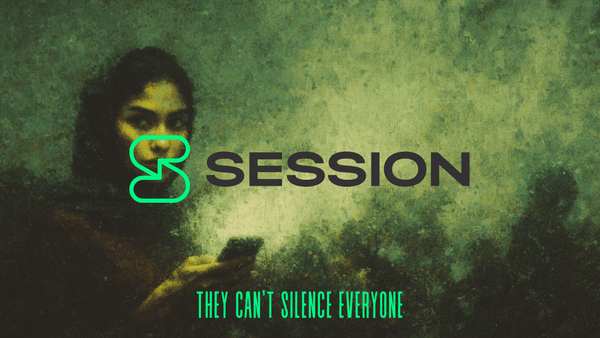How Peter Thiel Is Using Trump to Build America's Social Credit System
An investigation into the Trump administration's partnership with Peter Thiel's Palantir to create unprecedented surveillance infrastructure and how decentralized AI could be our last defense against digital authoritarianism

The most dangerous threat to American freedom isn't coming from foreign adversaries or domestic terrorists. It's being built in plain sight by the Trump administration, with the enthusiastic collaboration of Silicon Valley's most powerful surveillance capitalists.
Documents, government contracts, and insider accounts reveal that the White House has quietly assembled the infrastructure for a comprehensive surveillance state that would make China's social credit system look quaint. At the center of this operation: Peter Thiel's Palantir Technologies, a company that has spent over a decade perfecting the art of turning government data into social control.
Here's where this story gets complicated, and where speculation necessarily enters the picture.
Does Donald Trump actually understand what he's authorized? Or is he being manipulated by forces that understand technology far better than he does?
Consider Trump's background: he's a real estate developer and media personality who built his career on personal branding and deal-making. His understanding of technology has always been surface-level at best. When he talks about AI, it's usually in the context of making America "win" against China classic zero-sum thinking from someone who sees everything as a negotiation.
But Peter Thiel? Thiel has spent decades studying power structures, surveillance systems, and social control mechanisms. He's read the philosophy, understood the implications, and built the tools. When Thiel talks to Trump about "government efficiency" and "stopping fraud," is Trump hearing the same thing Thiel is saying?
It's entirely possible that Trump signed the March executive order thinking he was authorizing a simple cost-cutting measure eliminating bureaucratic inefficiencies and finding waste in government spending. The language was deliberately boring and bureaucratic. Would a man who struggles with technology understand that "eliminating information silos" actually means "building comprehensive surveillance infrastructure"?
Trump's own history suggests he wouldn't want this system used against him. He spent years complaining about government surveillance, FBI investigations, and Deep State targeting. If he weren't president if he were still just a businessman and political outsider would he want the government to have comprehensive databases tracking every American's financial, medical, and personal information?
The answer seems obvious. Trump the private citizen would be horrified by Trump the president's surveillance state.
This raises uncomfortable questions about manipulation and understanding. How much of what's happening under Trump's name is actually Trump's agenda, versus the agenda of people who understand technology and power far better than he does?
These are speculative questions, not definitive claims. But they're worth asking given the stakes involved.
What the order actually authorized was the systematic merger of government databases containing the most intimate details of American life: tax records, Social Security information, student debt data, medical claims, bank account numbers, immigration status, and disability information. For the first time in American history, a single entity would have comprehensive profiles on virtually every person in the country.
The Trump administration awarded Palantir over $113 million in new contracts to build this system, including a massive $795 million Pentagon deal. But the real scope becomes clear when you follow the money and the personnel movements.
Elon Musk's Department of Government Efficiency (DOGE) has been the operational arm of this data consolidation effort. At least three DOGE members are former Palantir employees, while two others worked at companies funded by Peter Thiel. This isn't coincidence it's coordinated capture of government surveillance capabilities by a narrow network of tech oligarchs.
Current and former Palantir employees describe a company culture increasingly comfortable with authoritarian applications of its technology. Alex Karp, Palantir's CEO, publicly boasts about how the company's tools are used to kill enemies and has joked about spraying critics with "light fentanyl-laced urine."
Thirteen former Palantir employees recently signed an unprecedented public letter condemning their former employer's work with the Trump administration. "Palantir is normalizing authoritarianism under the guise of a 'revolution' led by oligarchs," they wrote.
When your own former employees are warning about fascism, maybe it's time to listen.
To understand the scope of what's happening, you need to understand Peter Thiel's decades-long project to capture American government surveillance capabilities.
Palantir began as an anti-fraud algorithm at PayPal. After 9/11, Thiel theorized it could be used to hunt "terrorists." The company was funded by Thiel himself and In-Q-Tel, the CIA's investment arm. From day one, Palantir was designed to be a bridge between Silicon Valley innovation and government surveillance power.
The results speak for themselves. By 2012, Palantir had developed what amounts to a "pre-crime" system tracking government employees and predicting who might become whistleblowers before they leak classified information. The company doesn't just catch leakers; it predicts them.
Palantir's 2010 plan to destroy WikiLeaks reads like a blueprint for the current assault on press freedom and political dissent. The plan targeted the "global following and volunteer staff" of WikiLeaks, sought to "create doubt about their security," and recommended using "disinformation" to "sabotage or discredit" the organization.
Sound familiar? It should. The same tactics financial pressure, security theater, and disinformation campaigns are now being deployed against anyone who challenges the Trump-Thiel power structure.
Palantir's client list reveals another disturbing pattern: the company works extensively with Israeli intelligence and military operations, including providing technology used in Gaza surveillance operations. This isn't just business it's ideological alignment with one of the world's most sophisticated surveillance states.
The technology being deployed in occupied Palestine is now being turned inward on American citizens. The same systems used to track Palestinian movement, predict resistance activities, and identify "high-value targets" are being adapted for domestic American surveillance.
When Peter Thiel talks about "pre-crime" algorithms, he's not describing science fiction. He's describing proven technology already deployed against populations the Israeli government considers threats.
Even Trump's most hardcore supporters are beginning to notice. Nick Fuentes, hardly a moderate voice, called the Palantir partnership "the ultimate betrayal of his own people," describing it as "feeding every 'MAGA extremist' into an AI database controlled by a CIA/Mossad cutout."
When your own authoritarians think you've gone too far, that's telling.
The parallels between what Trump and Palantir are building and China's social credit system aren't accidental, they're aspirational.
China's system tracks citizen behavior, assigns social credit scores, and restricts travel, employment, and financial services based on political compliance. The Trump-Palantir system would have access to far more granular data about American citizens than China has about its own population.
Consider what's already being merged:
- Tax filings revealing political donations and business relationships
- Student debt data showing educational history and economic vulnerability
- Social Security records containing comprehensive employment history
- Bank account information tracking all financial activity
- Medical claims revealing health conditions and treatments
- Immigration status determining legal vulnerability
This isn't just surveillance it's the infrastructure for comprehensive social control. A system that knows your financial vulnerability, health status, political affiliations, and legal standing has unlimited leverage over your life choices.
The difference between America and China isn't that we have better protections against this kind of system. The difference is that we're building it through private contractors instead of government agencies, making it even harder to challenge or control.
There is another path. While Trump and Thiel build their digital surveillance state, a quiet revolution in artificial intelligence is proving that we don't have to choose between powerful AI and authoritarian control.
Bittensor represents everything the surveillance state fears: truly decentralized intelligence that can't be captured, controlled, or weaponized by any single entity.
Unlike the centralized AI systems being deployed by Big Tech and government contractors, Bittensor creates a peer-to-peer intelligence market where thousands of independent contributors train AI models collectively. No single entity controls the network. No government agency can seize the infrastructure. No corporation can shut down the system.
In Bittensor's model, intelligence production is distributed across a global network of contributors who are directly incentivized to create value rather than enable surveillance.
When Palantir trains AI models on government data, those models serve the surveillance state. When independent developers contribute to Bittensor, they're building tools that serve everyone while being controlled by no one.
The choice couldn't be clearer: centralized AI that serves power, or decentralized AI that serves humanity.
Something fascinating happened in the weeks following reports about the Trump-Palantir surveillance system: Elon Musk suddenly turned on his former political patron with unprecedented viciousness.
But the warning signs came earlier. Before Musk's public attacks on Trump's "big beautiful bill," before he called it a "disgusting abomination," there were Musk in the Oval office sporting a black eye, looking like he'd been in a serious physical altercation.
What exactly happened during those White House meetings? Did Musk discover something about the Palantir operation that made him uncomfortable? Did he try to pull DOGE back from the surveillance project? The black eye suggests those conversations got heated in ways that go far beyond normal political disagreements.
Then came the public break. Just as details emerged about Palantir's role in building America's surveillance state, Musk began his unprecedented attack on Trump's legislative agenda. The feud escalated rapidly, with Trump threatening to cut off billions in federal contracts to Musk's companies.
The questions multiply when you consider Musk's history with privacy and government overreach. Despite his many flaws, Musk has consistently opposed censorship and surveillance when it affected his own platforms. Did he finally realize he was helping build the very system that could ultimately be used against him?
WikiLeaks' timing adds another layer of intrigue. Just as the Musk-Trump feud went public, WikiLeaks began circulating information about Palantir's historical anti-transparency operations. Coincidence?
Whatever happened in those final DOGE meetings, Musk emerged looking like he'd been through a meat grinder and suddenly willing to publicly oppose the very administration he'd helped empower.
While Trump and Palantir build their surveillance apparatus, the tools for financial resistance already exist if Americans are smart enough to use them.
Bitcoin and Monero represent the two most powerful weapons against financial surveillance. Bitcoin provides pseudonymous transactions that, while traceable, require significant resources to analyze at scale. Monero offers true privacy, making financial surveillance practically impossible even for sophisticated state actors.
The government's ability to track, freeze, and seize traditional financial assets gives them enormous leverage over dissidents. But cryptocurrency transactions can't be stopped by bureaucrats or seized through legal procedures. They represent pure financial freedom exactly what authoritarian systems fear most.
We've already seen how financial surveillance and control can destroy lives. Ask the Canadian truckers whose bank accounts were frozen for participating in peaceful protests. Ask the January 6th defendants whose financial records were subpoenaed to build criminal cases.
The Trump-Palantir system would make those abuses look amateurish. With comprehensive access to banking data, tax records, and transaction histories, they could identify and financially destroy opposition figures before they even knew they were targets.
But cryptocurrency transactions live outside this surveillance system. Every Bitcoin payment, every Monero transfer, every decentralized exchange trade represents a small act of resistance against the surveillance state.
The choice is simple: use their financial system and accept total surveillance, or build parallel financial infrastructure they can't control.
The surveillance state being constructed by Trump and Palantir represents an existential threat to American freedom. But it's not inevitable.
Every centralized system has a decentralized alternative. Every surveillance tool has a privacy-preserving counterpart. Every authoritarian technology has a liberating response.
The question is whether people will use the tools already available and build new alternatives fast enough.
Bittensor and similar decentralized AI projects offer a glimpse of what's possible when technology serves people instead of power. But these systems need support, development, and protection from the very forces they're designed to resist.
The digital age doesn't have to mean the end of freedom. But freedom requires fighting for it with the same sophistication and determination that authoritarians use to destroy it.
The surveillance state is already under construction. The only question is whether Americans will let them finish building it.








